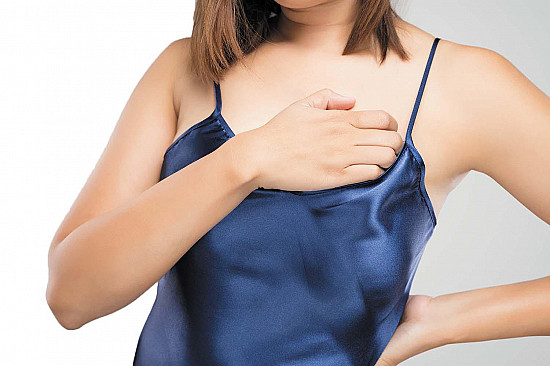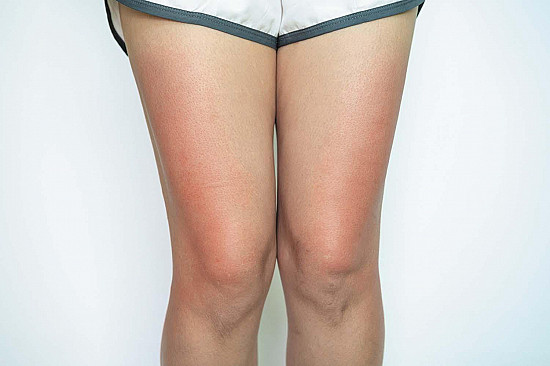
New thinking about plaque in arteries that feed the brain

Want to prevent shifting teeth? Maybe you need retainers

New evidence that polyphenol-rich foods help the heart

What you need to know about the new dietary guidelines

Food that’s healthier for people and planet can be cheaper, too

What are somatic workouts?

How to curb your stress eating

8 simple ways to reduce ultra-processed foods in your diet

How to spot Parkinson’s disease symptoms

Heart failure symptoms in women: How they’re different
Bakuchiol: Does it make skin look younger?

In the quest for younger-looking skin, retinoids reign supreme. These vitamin A-derived topicals are one of the best-studied anti-aging ingredients on the market. Retinoids include retinol, retinoic acid and several other related substances. They boost the production of collagen, a protein that minimizes fine lines and gives skin an overall smoother and more youthful appearance. Retinoids also help even out skin tone and fade age spots.
Retinoids can be harsh on the skin, causing side effects like dryness, burning, stinging, peeling, and sun sensitivity. A botanical ingredient known as bakuchiol (pronounced buh-koo-chee-owl) has gained popularity as a potential gentler alternative to retinoids.
Bakuchiol skincare products are marketed to treat everything from premature aging to acne and skin discoloration, with less irritation. But do they work as well as retinoids? Or is bakuchiol just another trendy skincare fad that has more marketing hype behind it than hard evidence?
What is bakuchiol?
Bakuchiol is an extract from the seeds of Psoralea corylifolia (nicknamed "babchi"), a plant grown in India that’s been a staple of traditional Indian Ayurvedic and Chinese medicine for many years.
Similar to retinoids, bakuchiol appears to stimulate collagen producing receptors in the skin. The difference is less risk of side effects.
It’s sold in serums and creams, many of which combine bakuchiol with other botanicals, like rosehip and seaweed.
Does it work?
Whether bakuchiol fights skin aging as well as the long-studied retinol is the question. And the answer is based on very limited evidence.
A small study in the British Journal of Dermatology found bakuchiol to be just as effective at erasing fine lines and improving skin color as retinol, but with less peeling and burning. The challenge in interpreting these results as a win for bakuchiol was the study’s small size — just 44 participants (seven of whom dropped out). In a different study, a bakuchiol-containing cleanser and moisturizer improved skin smoothness and signs of aging in 60 older women with sensitive skin.
Another trial evaluated a product that combined bakuchiol with melatonin and the vitamin C derivative, ascorbyl tetraisopalmitate in a three-in-one anti-aging cream. After 12 weeks of once-daily use, the researchers noted fewer wrinkles, increased skin firmness, and an overall improvement in skin quality among the participants. Because this study used a combination of ingredients, any skin improvements may or may not have been related to bakuchiol.
Other studies on bakuchiol were conducted on skin cells or skin substitutes, which makes it hard to draw any real conclusions about how they’d perform on human skin. By comparison, retinoids have been studied since the 1980s in trials including hundreds of (human) participants.
The scarcity of scientific evidence on bakuchiol’s effects made the authors of the British Journal of Dermatology study acknowledge that this skin product warrants additional testing. File bakuchiol under the "promising, but unproven" category.
Bottom line: If you want an anti-aging product with real science behind it, stick with retinoids but be prepared for some side effects. On the other hand, if you have sensitive skin or a preference for natural products, the main risk to trying bakuchiol is to your wallet.
Disclaimer:
As a service to our readers, Harvard Health Publishing provides access to our library of archived content. Please note the date of last review or update on all articles.
No content on this site, regardless of date, should ever be used as a substitute for direct medical advice from your doctor or other qualified clinician.

New thinking about plaque in arteries that feed the brain

Want to prevent shifting teeth? Maybe you need retainers

New evidence that polyphenol-rich foods help the heart

What you need to know about the new dietary guidelines

Food that’s healthier for people and planet can be cheaper, too

What are somatic workouts?

How to curb your stress eating

8 simple ways to reduce ultra-processed foods in your diet

How to spot Parkinson’s disease symptoms

Heart failure symptoms in women: How they’re different
You might also be interested in…

Skin Care and Repair
New information on treatments for both medical skin conditions and cosmetic problems is available in the Special Health Report Skin Care and Repair. This report describes scientifically approved treatments for common medical conditions from acne to rosacea, as well as the newest cosmetic procedures for lines, wrinkles, age spots, and other problems. An explanation of the ingredients in popular skin lotions and cosmeceuticals is also included.
Free Healthbeat Signup
Get the latest in health news delivered to your inbox!
Sign Up




